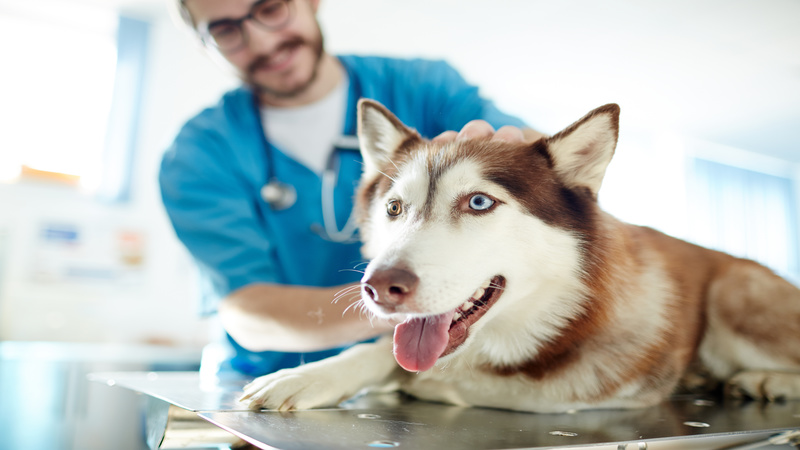
Your Monterey vet will tell you that prevention is better than cure even when you are taking care of your pets. As a responsible dog owner, you need to make sure that your dog is well-groomed, has the required vaccinations and doesn’t have fleas and ticks problem. Apart from scheduling regular visits to the vet, there are many things that a dog owner can do at home.
Talk To Your Monterey Vet About Pet Grooming
Eyes Exam: Eyes should be clear and bright and the area around the eyeball should be white. Check for the size of the pupils they, should be equal in size and free of tearing, discharge or any crust. The lining under the lower eyelid should be healthy pink. The eyes should be cleaned regularly by using a cotton ball to gently wipe the area. A red eye indicates infection and you will need to call your vet.
Check for your dog’s breath. An unusual sweet smell could mean diabetes. Check if your dog has been urinating frequently. A foul smell could mean liver or kidney problems. Maintain your dog’s oral health with regular visit to your Monterey vet, feeding quality food, frequent brushing and giving him a safe, clean toy to chew. Talk to your vet for other checks that you can do at home.
Ask Your Monterey Vet About Parasite Prevention In Your Dog
If you see black-and-white, salt-and-pepper-like grains in the dog’s coat, he/ she is probably suffering from flea infestation. These grains are flea feces. Fleas move so fast in the hair that it is difficult to catch them. Use a fine tooth comb to brush the hair and look for the fleas.
You will need to discuss with your vet about the flea treatments to be used for your pet. There are flea shampoos available along with topical insecticide creams. There are liquid preparations available that require a monthly application and are effective in controlling adult fleas as well as eggs from hatching.
Keep The Vaccinations Up To Date With Your Monterey Vet
Vaccinations in young puppies should be administered sooner than later as they are highly likely to get infectious diseases like distemper, parainfluenza, rabies and infectious hepatitis. Some vaccinations, like, giardia and bordtella are optional depending upon your location and occurrence of these diseases in your area. Talk to your vet for the vaccines that are required for your pet.
The American Animal Hospital Association (AAHA) guidelines advice the administration of vaccines at the age of 6 weeks but most vets and breeders get the vaccines to their puppies at 7 or 8 weeks of age and might give a final vaccine by the age of 16 weeks. For endemic diseases, the recommendations are to revaccinate at 1 year of age and then every three years.
A healthy pet is a happy pet. Talk to your Monterey vet and get educated about the preventive care for your dog. For more information

